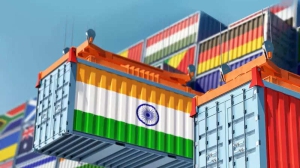The media has been playing a pivotal role in highlighting the functioning of the Indian judiciary.
The relationship between media and judiciary needs to be carefully managed by both the institutions. While the media strives to provide access to information to the public, it needs to ensure that it does not trample upon the rights of various parties involved in a particular case or unduly influence the judiciary.
Freedom of the Press stems from the Right to freedom of speech and expression accorded to the citizens. It may either be implied, or be an expressly conferred right.
The Right to free speech may be viewed as one of the cornerstones of any truly democratic society. This right occupies a significant place in our constitutional scheme. Article 19 (1) (a) of the Constitution guarantees to every citizen the freedom of speech and expression.
While the courts have been in a large measure protecting a free Press, they have also emphasized the importance of a responsible Press. In a sense it has to be perceived as a right conferred with responsibility.
It is, therefore, the responsibility of representatives of highly responsible and respected members of the media to set higher standards of legal reporting and encourage the rest of the media fraternity to follow such principle. There is a conceptual difference in reporting other news and reporting of court proceedings.
The role of the media as a pillar of democracy is widely recognised today. There are concerns over whether the Press today operates any differently from other businesses. Ownership of media organisation has become increasingly concentrated, and there are apprehensions that ownership may influence editorial control. The law, however, still protects and promotes freedom of the Press as an important facet of the freedom of speech and expression.
As the concept of privacy is constantly changing based on context, societal norms and emerging technology, the privacy Act should be technology and sector neutral. Because of the dynamic nature of privacy, the privacy Act should create a Right to Privacy that is applicable to all situations and does not require that a ‘reasonable expectation’ be present, for the right to be evoked.
In India, the Right to Privacy has been derived from rough judicial decisions, from the rights available under Article 19 (1) (a) (the fundamental right to freedom of speech and expression) and Article 21 (the right to life and personal liberty) of the Constitution.
Whereas Section 499 IPC defines defamation coupled with ten exceptions, Sections 500,501,502 IPC provide that whoever defames another including by printing / engraving matter or its sale thereof shall be punished with simple imprisonment for a term which may extend to two years, or with fine, or with both.
The issue of defamation has to be very carefully considered. On the one hand, instances of fake sting operations or trial by media give credence to allegations of irresponsible journalism, while on the other, threats of legal action with punitive damages under the laws of defamation lead to a chilling effect on the publication of free and independent news articles and puts undue pressure on journalists and publishing houses. Any change to the laws on defamation in India must balance these two considerations.
In spite of being the world’s largest democracy, there is no ‘explicit’ constitutional fundamental right to freedom of Press in India. Hence, a journalist / reporter has got no special status under defamation law in India. Although the Press / media enjoys the freedom of speech and expression under Article 19 (1) (a) of the Constitution, defamation being a reasonable restriction to such freedom as enshrined under Article 19 (2), any member from the fraternity is treated just like any other individual when any aggrieved alleges commission of defamation. Needless to say, a whopping number of victims of criminal defamation are indeed members of the fourth estate of democracy.
Has the time come for decriminalising the offence of defamation in our countryIJ Well, though there may be varying opinions over the same amongst our political class and other sections of the civil society, especially with in the legal fraternity itself, nevertheless it is high time to take a final call upon this hitherto overlooked issue particularly as the Supreme Court is currently seized of the vexed question.
The media is the gatekeeper and watchdog of the society. The media acts as multifaceted institution with multiple activities. The freedom of Press is a necessary concomitant of the freedom of expression that involves a right to receive and impart information without which democracy becomes an empty slogan. But the right is not absolute and is subjected to the reasonable restrictions of defamation and contempt of court. The basic principle is media has to publish that is in public interest and not what “public is interested in”.
(Dr Maharana is a faculty member, Jeypore law College, Jeypore Koraput, Mob: 9438170563)

























